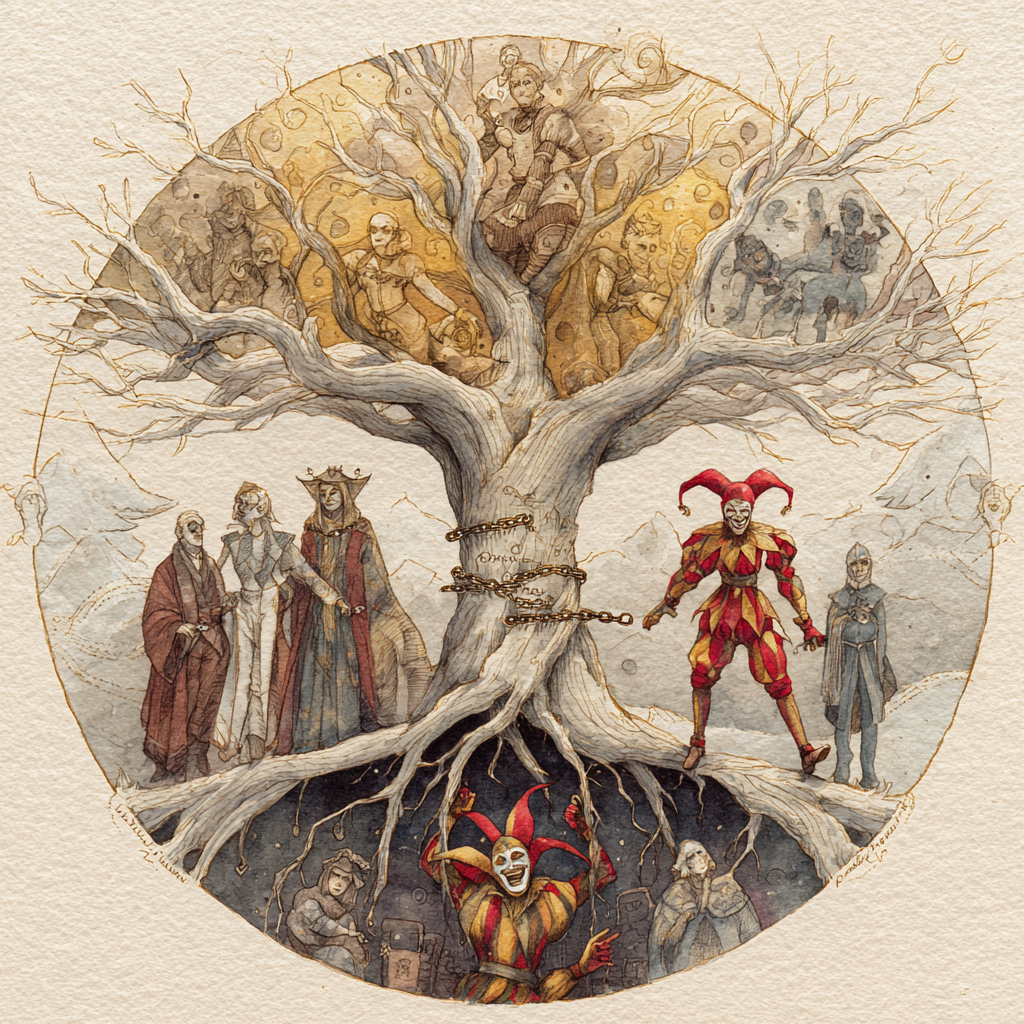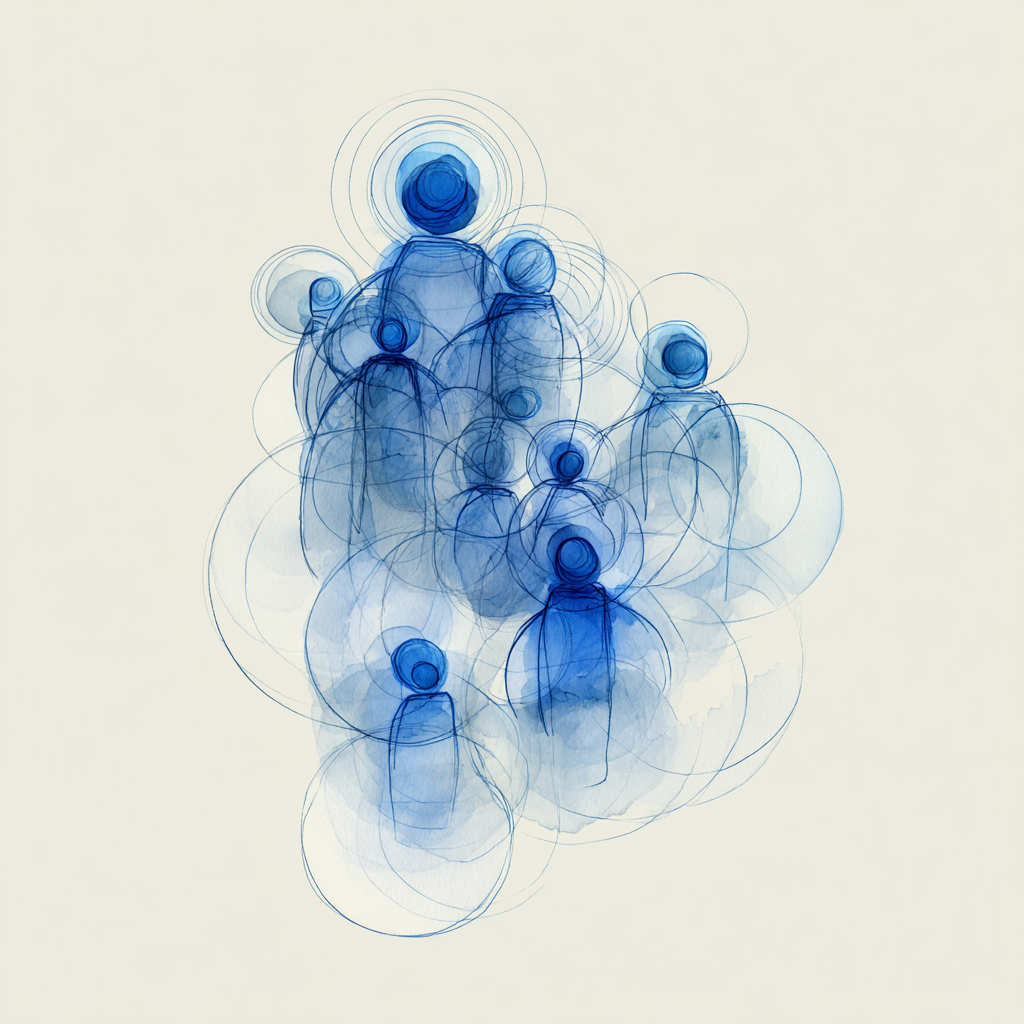Why Siblings Gang Up on the Scapegoat in Narcissistic Families
The Reality of Narcissistic Family Dynamics
Family is supposed to be our resting place, a space of safety and support. But for many in narcissistic families, this isn't the case. Sibling arguments might be dismissed as normal rivalry or playful banter, and certainly, conflict can occur without indicating a narcissistic family. However, for those in the scapegoat role, the experience often involves intense bullying, ostracization, and resentment from siblings—sometimes simply for existing and sharing parental attention.
These roles—golden child, scapegoat, lost child, mascot, and others—are assigned early on and can fluctuate. Typically, there's a scapegoat and a golden child, with the lost child also common. Not always, but often the golden child is the oldest, or the oldest becomes the enforcer, groomed over a longer period due to more exposure to the parents. Because of their age, they reinforce the narcissistic parent's grandiosity or the shared family narrative.
This can be incredibly difficult for the scapegoat. You might expect support from siblings who've witnessed the same cruelty—perhaps a mother's harshness or a father's anger outbursts. Even if they're the golden child and haven't received as much abuse, they're likely aware. Yet, when the scapegoat seeks that brotherly or sisterly bond, siblings often turn against them, minimizing experiences, gaslighting, and labeling them as "difficult." The scapegoat is usually accurate and truthful, not trying to pull the family down but seeking truth and support.
Why Siblings Align Against the Scapegoat
This alignment could stem from evolutionary instincts: children depend on parents for survival, and that operating system persists into adulthood, leading siblings to side with abusive parents. It's demoralizing—the siblings shared your upbringing, know the parents' cruelty, yet deny it when you confide.
Drawing from Bowen Family Therapy, dysfunctional narcissistic families lack differentiation, forming what Murray Bowen called the "undifferentiated family ego mass." This emotional unit reacts as one, with no individual boundaries. As Bowen described, it's "a conglomerate emotional oneness that exists in all levels of intensity." (Learn more at The Bowen Center).
From Sam Vaknin's perspective on narcissism, parents lack boundaries, treating children as extensions for narcissistic supply. Vaknin notes, "The narcissistic parent regards his or her child as a multi-faceted Source of Narcissistic Supply—as an extension of the narcissist." The golden child reflects the parent's greatness, while the scapegoat absorbs projections of unresolved shame, guilt, or jealousy. (Explore Vaknin's work in Malignant Self-Love: Narcissism Revisited at samvak.tripod.com).
These roles maintain the family's dysfunctional equilibrium and have little to do with the child's true personality—though dispositions might influence assignments. They become rigid, not reflecting the child's underlying self, which becomes evident as you age and discover your nuances.
Siblings might be groomed into narcissism themselves or unwittingly emulate it to maintain favor, discrediting the scapegoat to keep the family narrative intact. This is a projection process: parents avoid owning their psyche's issues, projecting onto one or more children. Alliances can form between some siblings, but often, it's the entire family against the scapegoat, with siblings acting as extensions—flying monkeys stirring drama or gathering intel for parental approval.
The Emotional Toll: Disenfranchised Grief and Smear Campaigns
This is obviously incredibly hard, leading to disenfranchised grief—the unrecognized loss of a supportive family. Once you realize the dynamic, you grieve something society doesn't always acknowledge. There's growing awareness through videos like mine and books, but stigma and ignorance persist. Normal sibling discord exists, but in narcissistic families, parents invest in undermining the scapegoat with rigid, inappropriate roles to preserve their identity.
Going to siblings for support often fails—they shared your childhood, yet deny it, blaming you as difficult or crazy. That's devastating. Without alliances, scapegoats endure smear campaigns from siblings, extended family, or friends, often staying quiet. Arguing back rarely helps; as I've covered in other videos, resisting smears doesn't do much good. Speak truth to some degree, but on average, go silent, individuate, and develop yourself.
This cycle starts young: you might think it's just an argument or blame yourself, internalizing because it's too painful to accept family doesn't have your back. There's no true loyalty—it's about conforming to the narrative and supporting parents unconditionally. Concerns threaten equilibrium, so you're pressured back into the scapegoat position. You either comply or limit/go no contact. Some families allow therapy, reconciliation, or forgiveness if less dysfunctional. But if parents are truly narcissistic and siblings enforce the narrative or emulate it, part of the collective ego mass with low differentiation, there's little you can say or do except individuate.
Strategies for Navigating and Recovering from Scapegoating
If you're on the receiving end as the scapegoat in a narcissistic family, start by dealing with disenfranchised grief: grieve the childhood you never had, the missed experiences, and the lack of an emotional family that has your back. It's hard—society, friends, or even professionals might not recognize it, blaming you or urging communication favoring the family.
Be the change: you can't control others, but you can control your responses, development, and growth. If there's a smear campaign, don't participate. In hopeful cases, dialogue might lead to parents recognizing faults. But without sibling alliances, grieve alone and be a light to yourself.
Additional tools: Practice self-compassion daily, forgiving past self-blame. Build a chosen support network for validation. Journal thoughts, patterns, and achievements to foster resilience. Educate on narcissistic dynamics through resources to affirm your reality. Use mindfulness to manage triggers and respond thoughtfully.
For deeper healing, consider recommended books like Rejected, Shamed, and Blamed: Help and Hope for Adults in the Family Scapegoat Role by Rebecca C. Mandeville (Amazon link) or Growing Up as the Scapegoat to a Narcissistic Parent: A Guide to Healing by Jay Reid (Amazon link). Therapy modalities like Internal Family Systems (IFS) can help process trauma and rebuild self-worth.
Have you recognized these patterns in your family? Share in the comments—your story might help others. If this resonates, watch the full video for more.
Download the Reports for The Scapegoat & Narcissistic Abuse Recovery Course + 45pg Healing Toolkit here: https://blaketherapy.ca/the-ultimate-toolkit.




